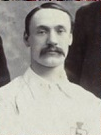
Many years ago Blackburn Rovers gave a job to a coach who had been brought up in a travelling circus. Like all circus children, he picked up many of those performing skills associated with this profession. These included flying trapeze, tight rope walking, juggling and even being a clown. But our former coach was also a master of other less physical arts, but no less skilful – ventriloquism and hypnotism.
After a decent career as a professional footballer, management beckoned. This is where he really could have come into his own, thanks to his circus skills. It is often said every manager walks a tightrope. But in the case of most football managers, there are no safety nets, just a sack. Our coach started off by being put in charge of our youth and academy teams. Almost immediately he found this could be a poisoned chalice.
He found a unique way of solving those problems of capturing the attention of this demanding audience. A room full of Rovers youngsters thought something strange was going on when their coach brought a suitcase in with him and took out a ventriloquist’s dummy. He put his hand inside it and started opening its mouth and rolling it’s eyes around. By now the room had gone quiet and all eyes were turned on this dummy and its handler.
The trick for our coach was to hypnotise his dummy. But it had been a long time since he worked with his wooden friend. He ended up putting himself into a trance and being hypnotised by his own dummy. We also had a strange situation where every child in the room was also briefly hypnotised by this dummy. Eventually everybody woke up from their shared trance. It was like they had all lost half an hour from their lives, nobody could remember what had happened before, during or after their trance.
Things were even worse for the man who was supposed to be in charge. This hypnotic trance appeared to have done some kind of temporary psychological damage to him. He seemed to be more worried about the lads losing their kit and equipment from this training session. He tried to reassure them that he had saved their equipment and kept muttering:
“I got all the gear, I got all the gear, I got all the gear”.
After this incident our football club dispensed with his services and he was never seen again. At least there were no lasting effects on these young players. Many of them went on to become successful footballers in their own right.
As for our former coach, things didn’t turn out so badly for him either. He landed on his feet after mesmerising a rich and beautiful celebrity actress who was more than half his age. The media couldn’t understand what she saw in him. But he said his powers of hypnosis didn’t always let him down.










You must be logged in to post a comment.